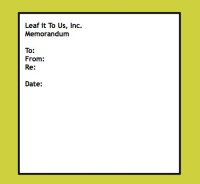Week 2: definition (in stasis theory) and rain garden memo
I hope your holiday was relaxing. Let's start with some word fun:
Today's fun word is mummichog or mud minnow a kind of killifish in the C.B.---
mummichog or mud minnow a kind of killifish in the C.B.---
Could you pass a quiz -- if we did that -- on rain gardens? What is a rain garden? We will draft, revise, peer review an informational memo on rain gardens over the next week. This class journal post contains most of the links we need over the next week.
The structure and type of paragraphs you will write follow Aristotle's (really, more the contribution of Hermanagoras!) stasis theory (very much a system of analysis and action, like your scientific method steps). You will open and close the memo with brief introductory paragraphs, but the meat and potatoes (or tofu and kale) of your memo will be these staged, disciplined paragraphs.
- Brief, Working Definition (what is a rain garden, briefly, by two functions)
- Classification (what type of technology is this? Hint: low impact development and storm water management)
- Extended Description (Illustrative; give detail on the layers of soil and the type of plants; best to divide the complex material into two parts, plants/function and soil layers/function)
- include two examples; consider the ones on campus (can be sep. para OR placed at end of doc)
- Evaluation (is this good or bad? Use Dr. Davis' research as you do not have authority to evaluate based on your expertise)
I would think you need about one source per these paras: classifying, illustrating, evaluating. Use (author, date) citation from APA guidelines. Include a works cited page also.
Audience scenario for this memo: Here is Jane, our boss. She asked for the memo at the end of our last staff meeting.
 irst up! What is a memo?
irst up! What is a memo?
 By the way, the OWL website at Purdue is a fabulous resource for writing. Memos also have a standard format: See the image to the left. Also, look at the email heading in your software. This electronic message is based on the memo format.
By the way, the OWL website at Purdue is a fabulous resource for writing. Memos also have a standard format: See the image to the left. Also, look at the email heading in your software. This electronic message is based on the memo format.
Bonus question: what is the difference, traditionally, between a memo and a letter?
Topic Sentences: A list of qualities for you to strive for
- Usually a short direct sentence (think announcement)
- Signals the topic in the paragraph (think preview)
- Hooks the reader by 1) raising a question or 2) provoking thought
- Can be placed anywhere, but early on in the paragraph is the best default strategy for most professional documents; in other words, at the beginning of the paragraph
- Contains an element of transition from the previous paragraph
Note: topic sentences can be implied in tightly coherent prose (for now, leave this subtle technique to the professionals!)
Let's look at examples of topic sentences useful in the rain garden memo:
Rain gardens, or bioretention ponds, are a kind of low impact development. Low impact development....
Rain gardens have two components: layers of percolation material and carefully chosen plants.
Rain gardens protect the local environment by absorbing water run-off from impervious surfaces and by sequestering pollutants.
Dr. Allen Davis studies rain garden effectiveness. Davis, a civil engineering professor, has been studying bioretention for more than twenty years.
Let's also think about sentences generally. General advice to you? Write shorter sentences than those you are familiar with in literature and many of your textbooks.
Now, let's think about sentences:
And, on to paragraphs:
Paragraph Definition: think Architectures
More on stasis approaches:
Stasis and research (Owl Purdue, by colleague A.B.)
BYU page on stasis approach (see how legal process and jurisprudence knits forth?)
Stasis and dinosaur debate (download full text and skim)
My take on stasis with environmental scientists